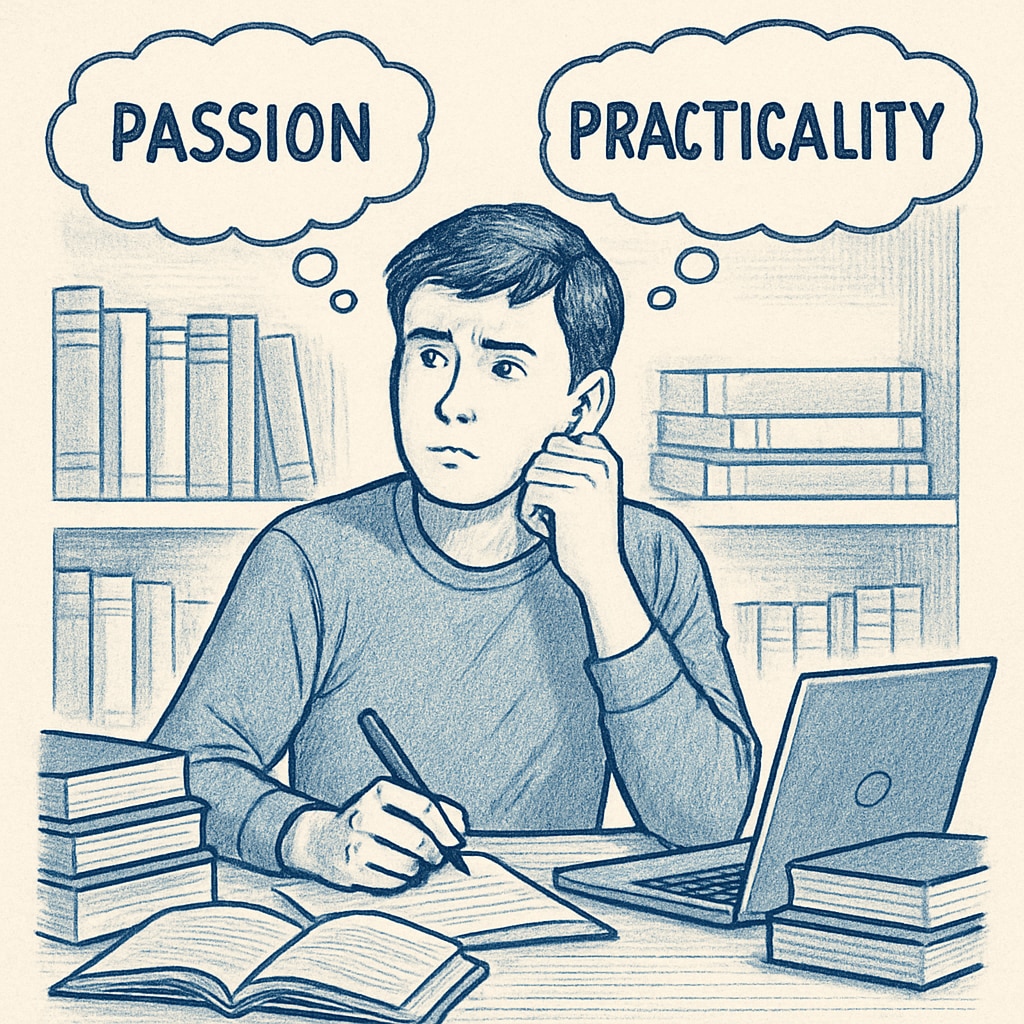For college dropouts looking to return to academia, the dilemma of balancing academic planning, major selection, and career development often becomes a significant hurdle. Should they pursue a field they’re passionate about, or focus on a major with strong employment prospects? This article delves into these challenges, offering insights and strategies to help students strike a balance between passion and practicality in their educational choices.
Understanding the Dilemma: Passion vs. Employment Prospects
Returning to college after dropping out is a bold decision, but choosing the right major can be daunting. Many students face the tension between pursuing a subject they love and selecting a field that offers stable and lucrative career opportunities. For example, while creative arts or philosophy may ignite passion, fields like computer science or healthcare often guarantee higher employability. This decision is not just about individual preferences but also involves navigating societal expectations and financial realities.

How to Evaluate Academic and Career Goals
To make an informed decision, students can start by evaluating their personal interests, skills, and long-term career aspirations. Here are three practical steps:
- Identify Core Interests: Reflect on hobbies, past academic experiences, and projects that spark excitement.
- Research Industry Trends: Explore job market data to understand which fields are experiencing growth and demand. Reliable resources include U.S. Bureau of Labor Statistics and Glassdoor.
- Match Skills with Opportunities: Assess transferable skills—critical thinking, communication, or technical expertise—and align them with potential careers.
For example, a student passionate about writing might explore digital marketing or content creation, combining creativity with marketable skills.
Framework for Decision-Making
Balancing passion and practicality requires a structured approach. The following framework can help:
- Self-assessment: Conduct a SWOT analysis (Strengths, Weaknesses, Opportunities, Threats) to identify areas for growth and career alignment.
- Career Exploration: Use informational interviews or job shadowing to gain insights into different fields.
- Educational Flexibility: Consider interdisciplinary majors or minors that allow blending interests and practical skills. For instance, combining psychology with data analytics offers a unique edge in behavioral research.
Additionally, students should consult academic advisors to tailor their education paths to their unique goals.

Finding the Balance: Key Takeaways
While the struggle between passion and practicality may seem overwhelming, it is essential to remember that these elements are not mutually exclusive. Many successful professionals find ways to integrate their interests into stable career paths. For example, a passion for sustainability can lead to a thriving career in renewable energy or environmental policy.
Ultimately, the key is adaptability. By staying informed about industry changes and remaining open to new opportunities, students can craft a fulfilling education path that aligns with both personal and professional aspirations.
Readability guidance: Use concise paragraphs, practical examples, and a balanced tone. Emphasize actionable advice through lists and frameworks, ensuring clarity and engagement.


